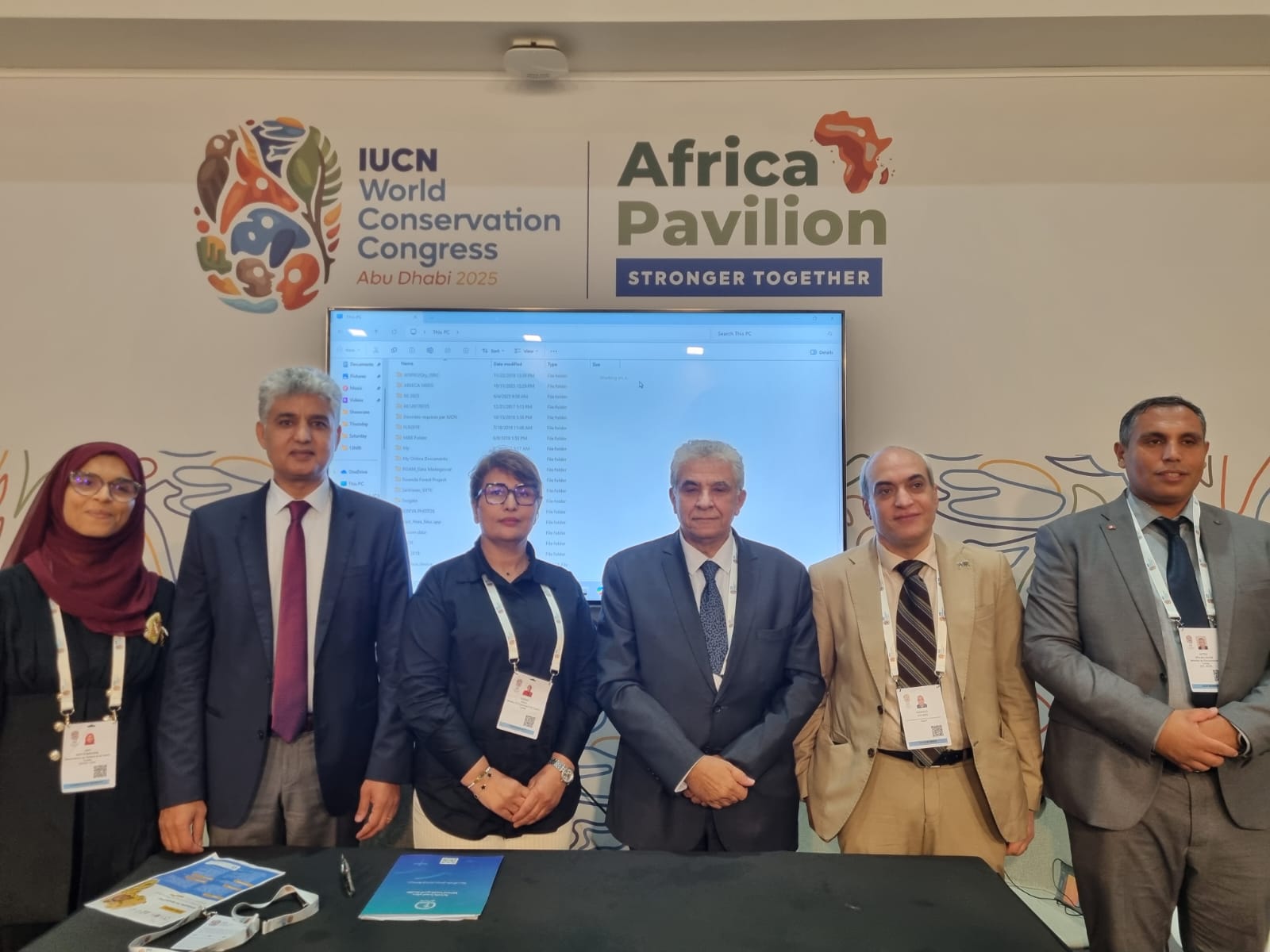
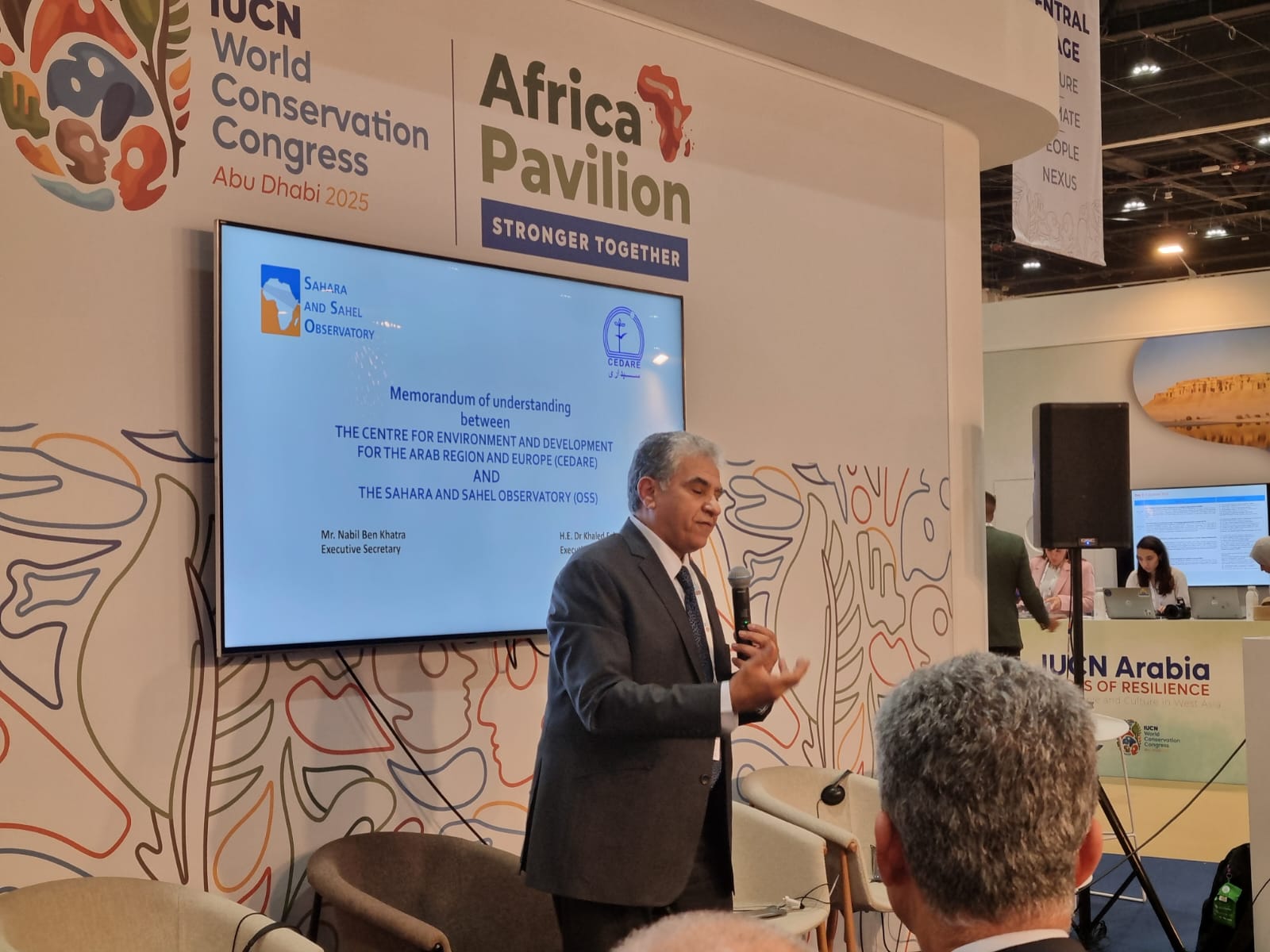
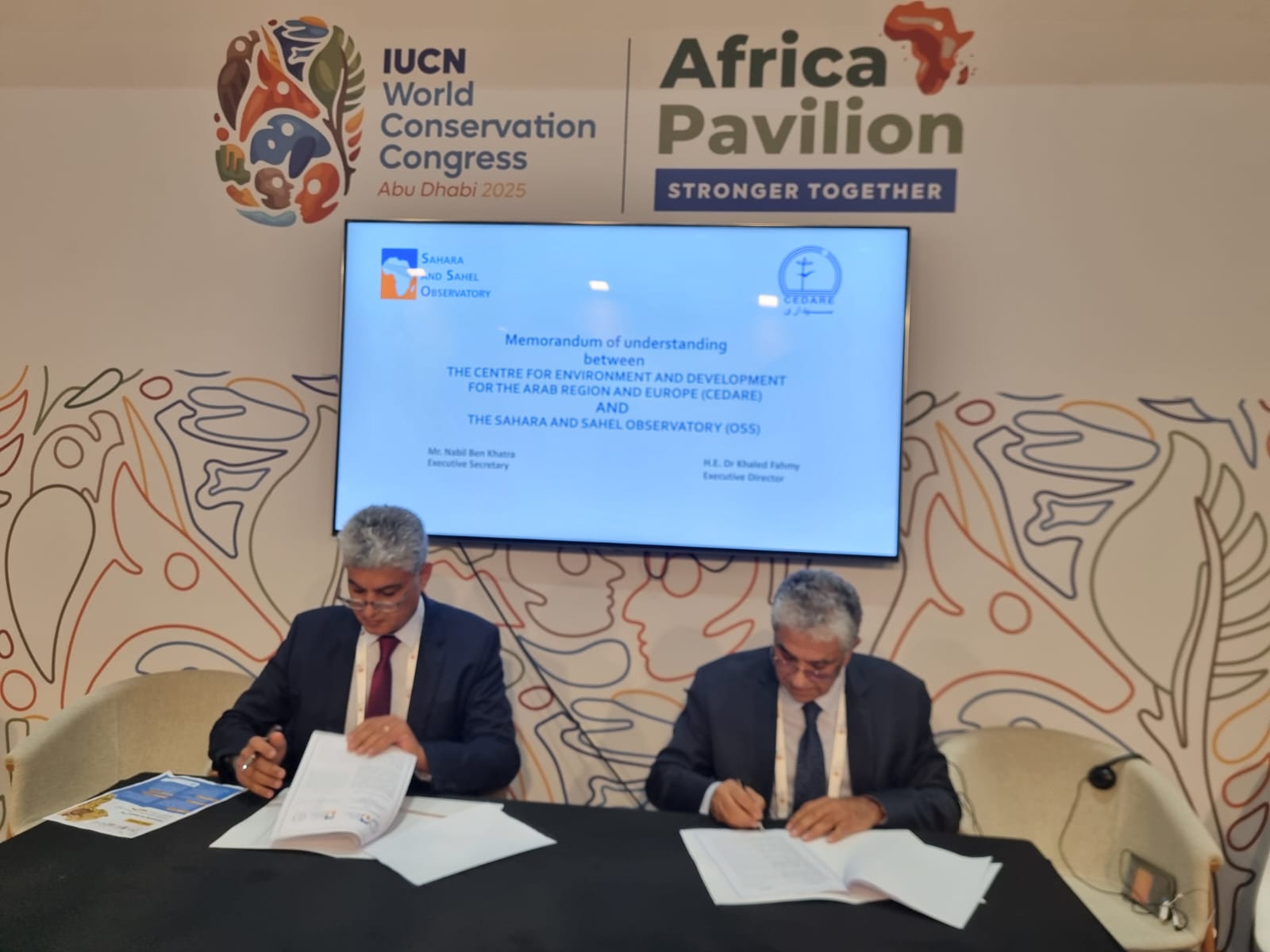
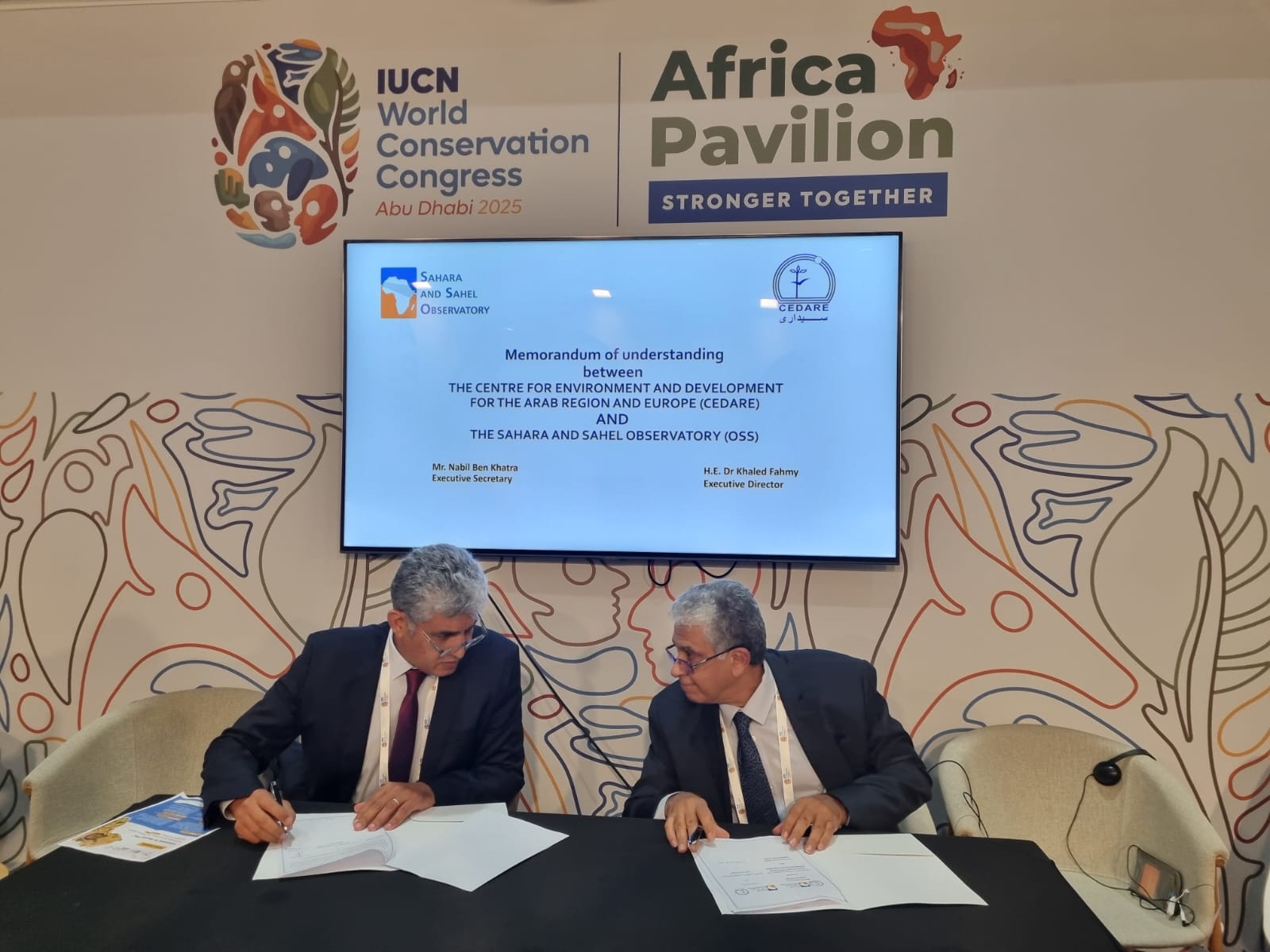
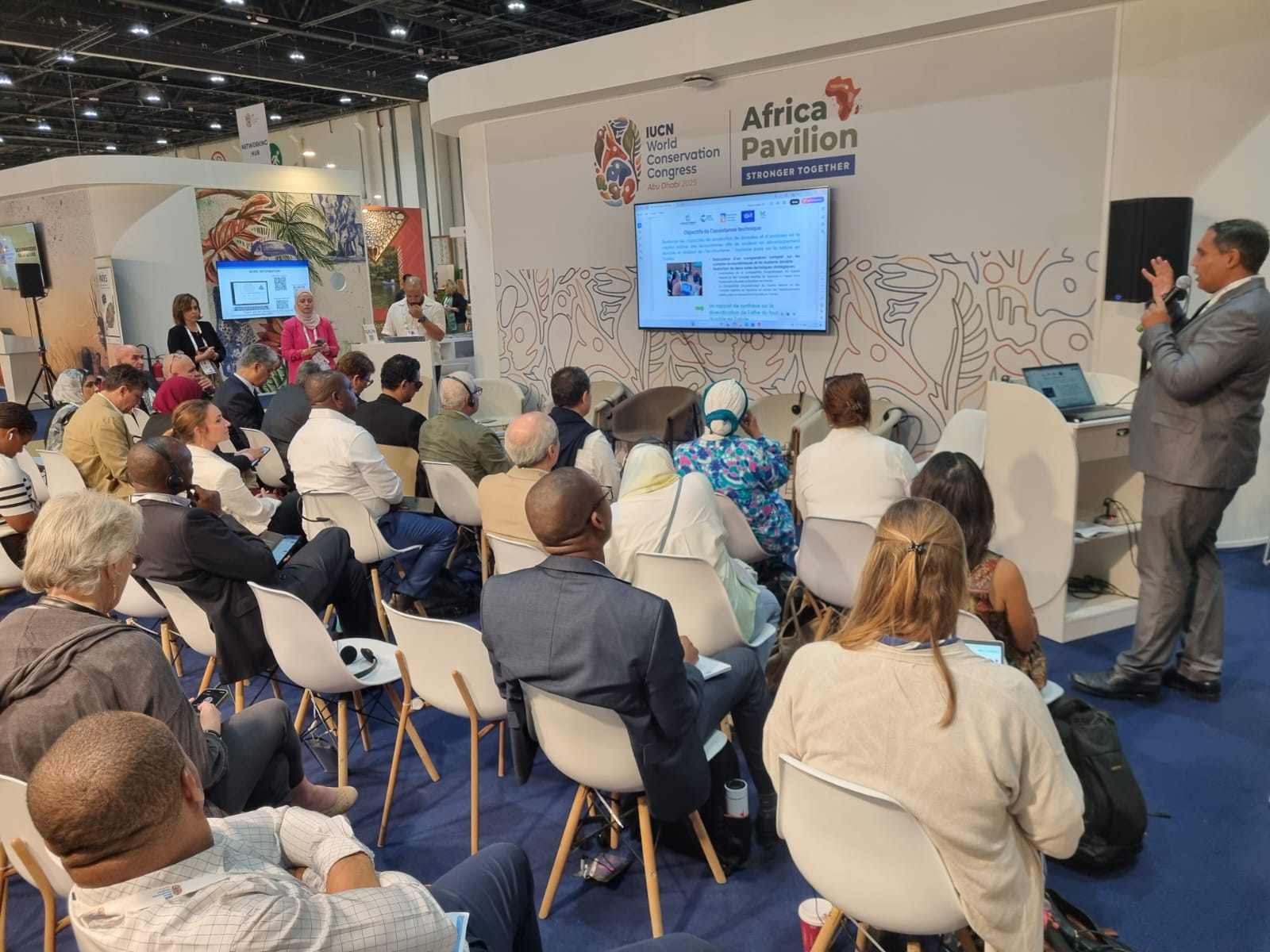
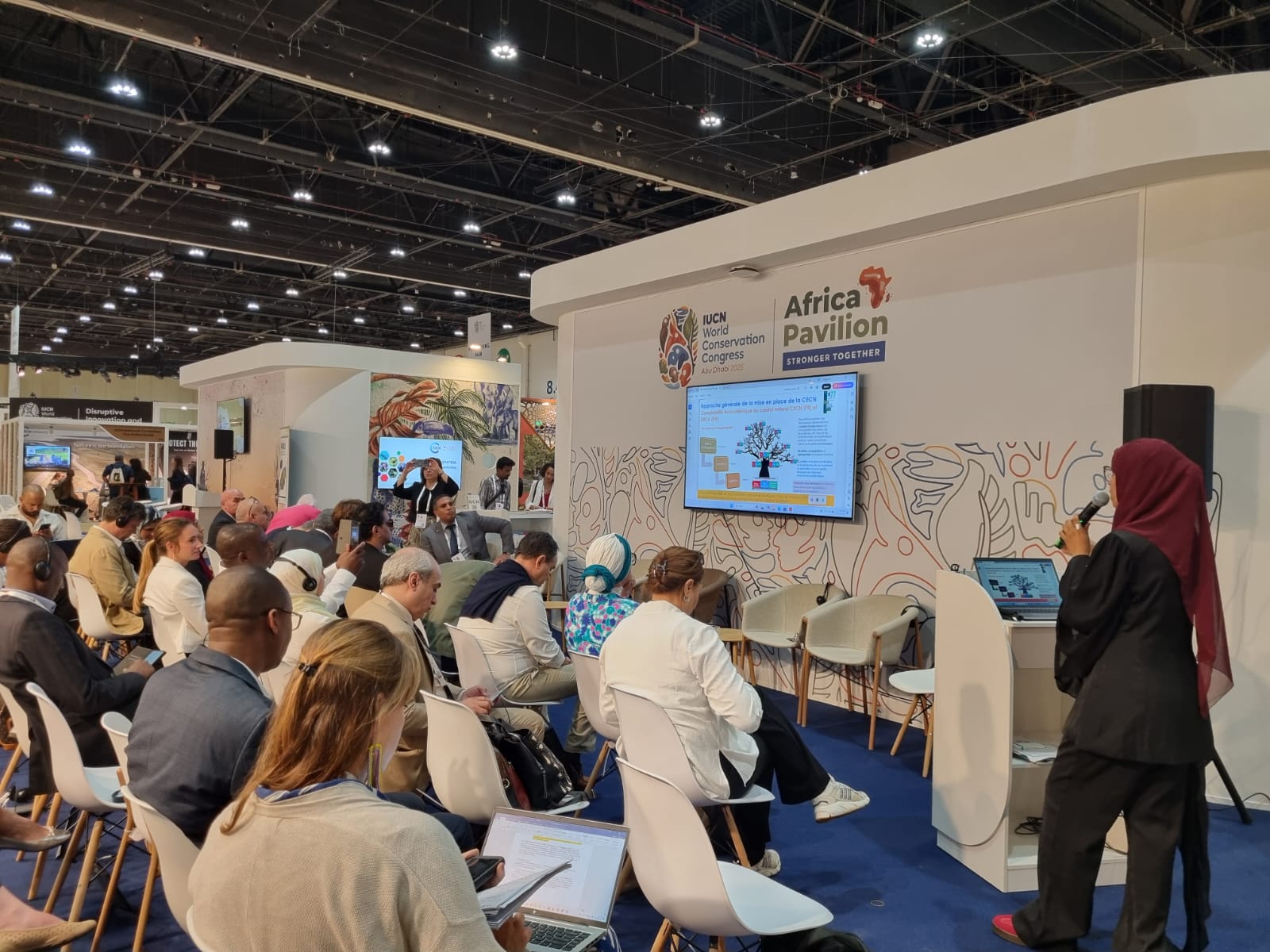
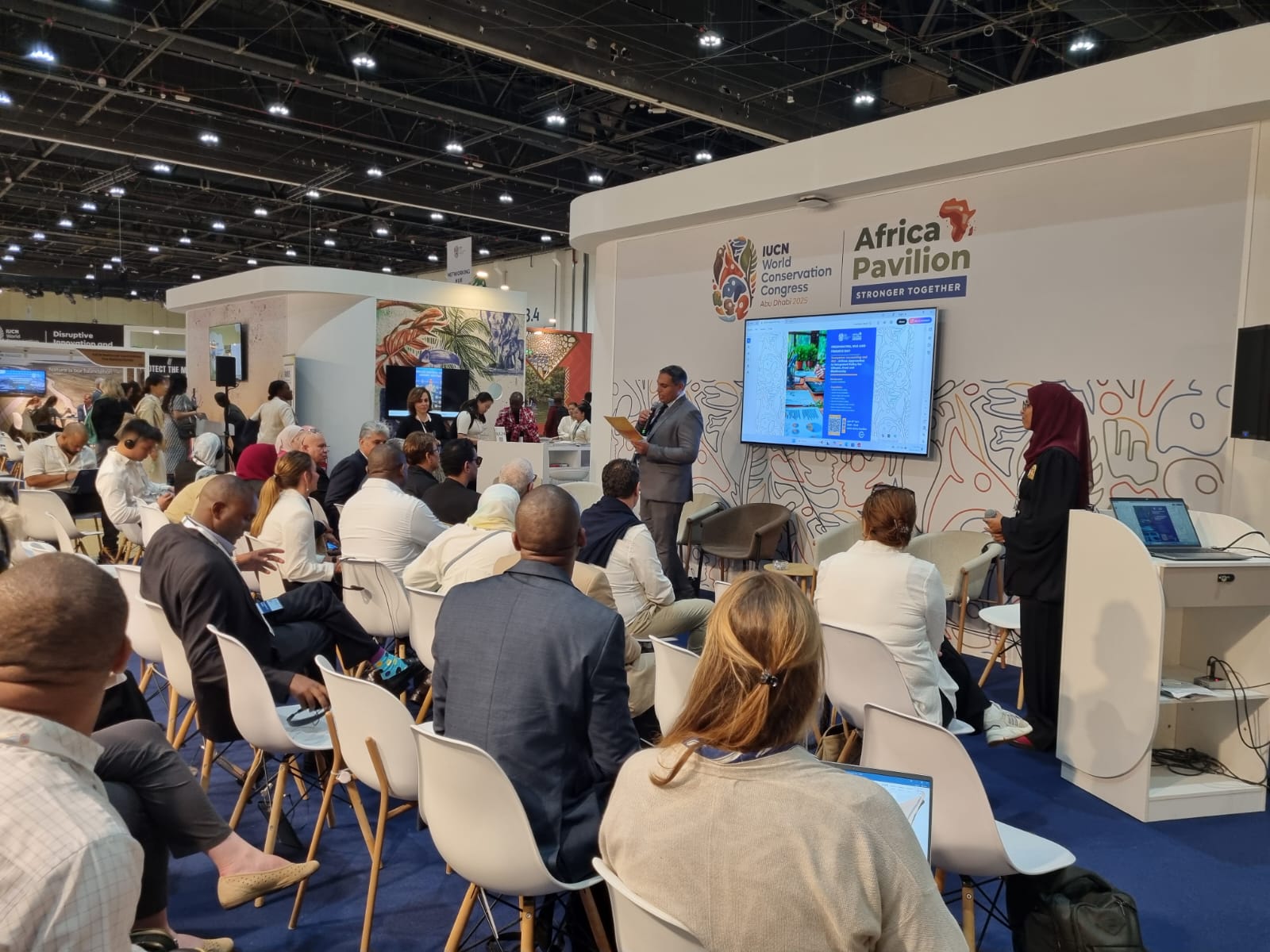
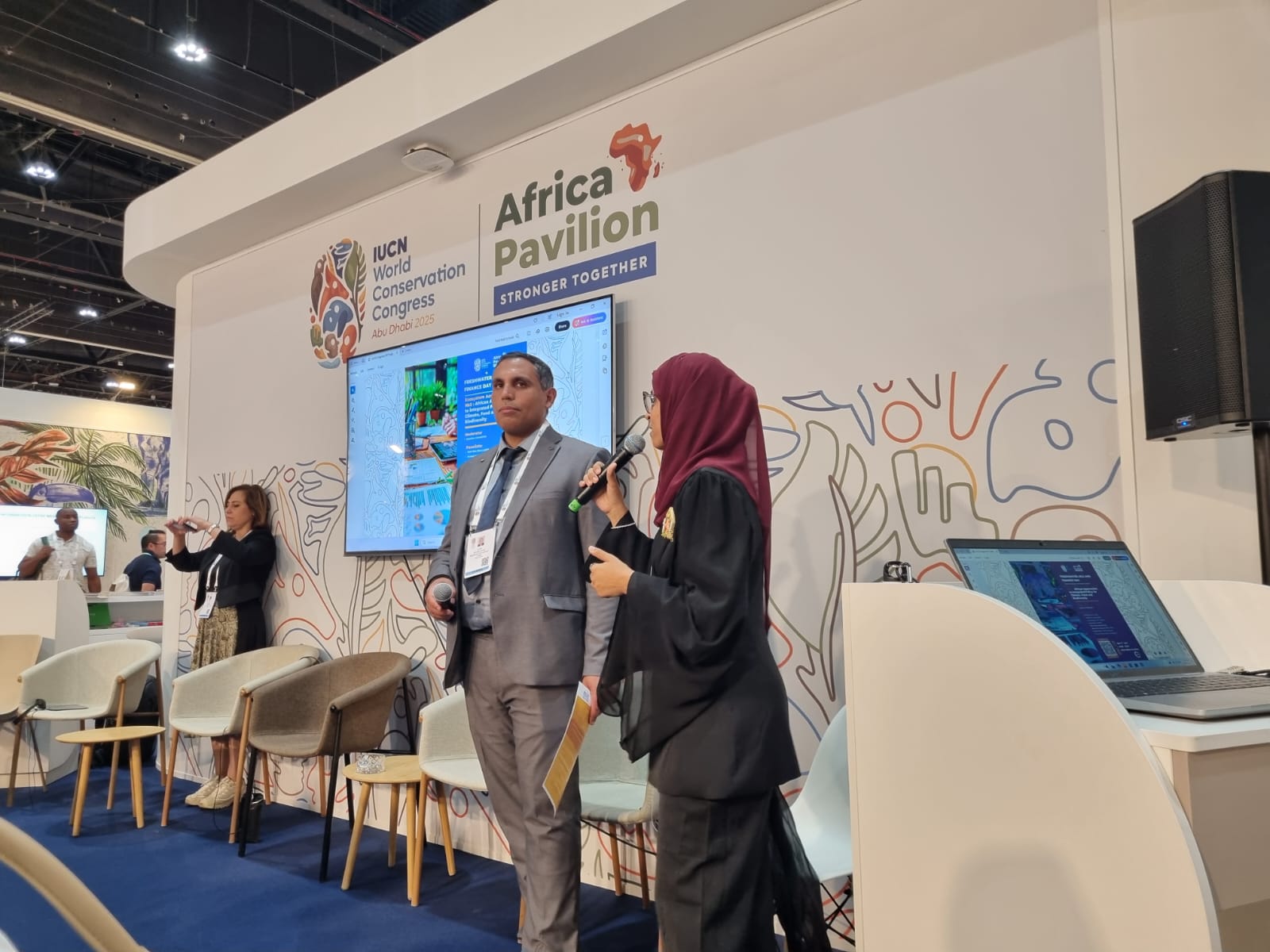
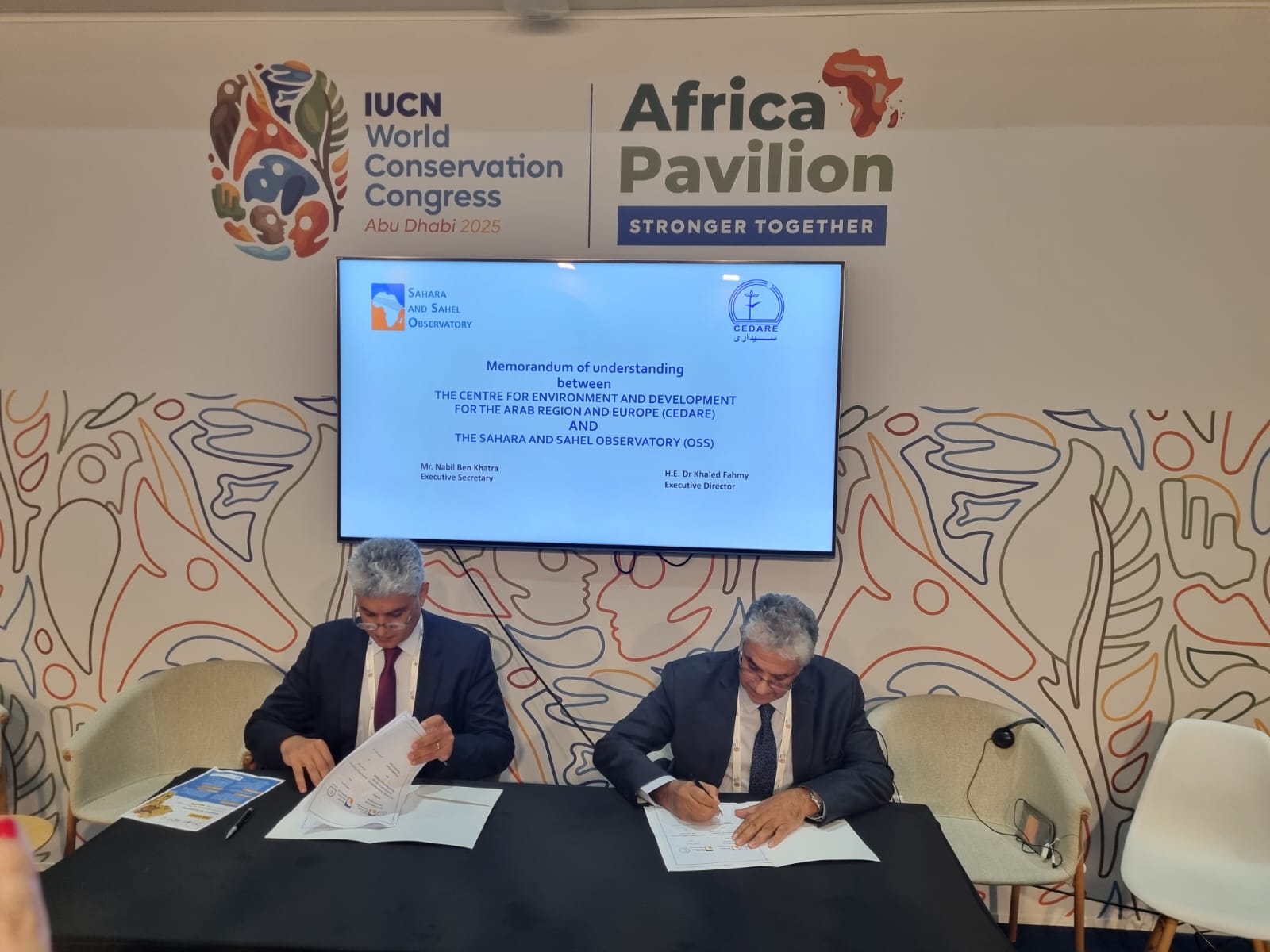
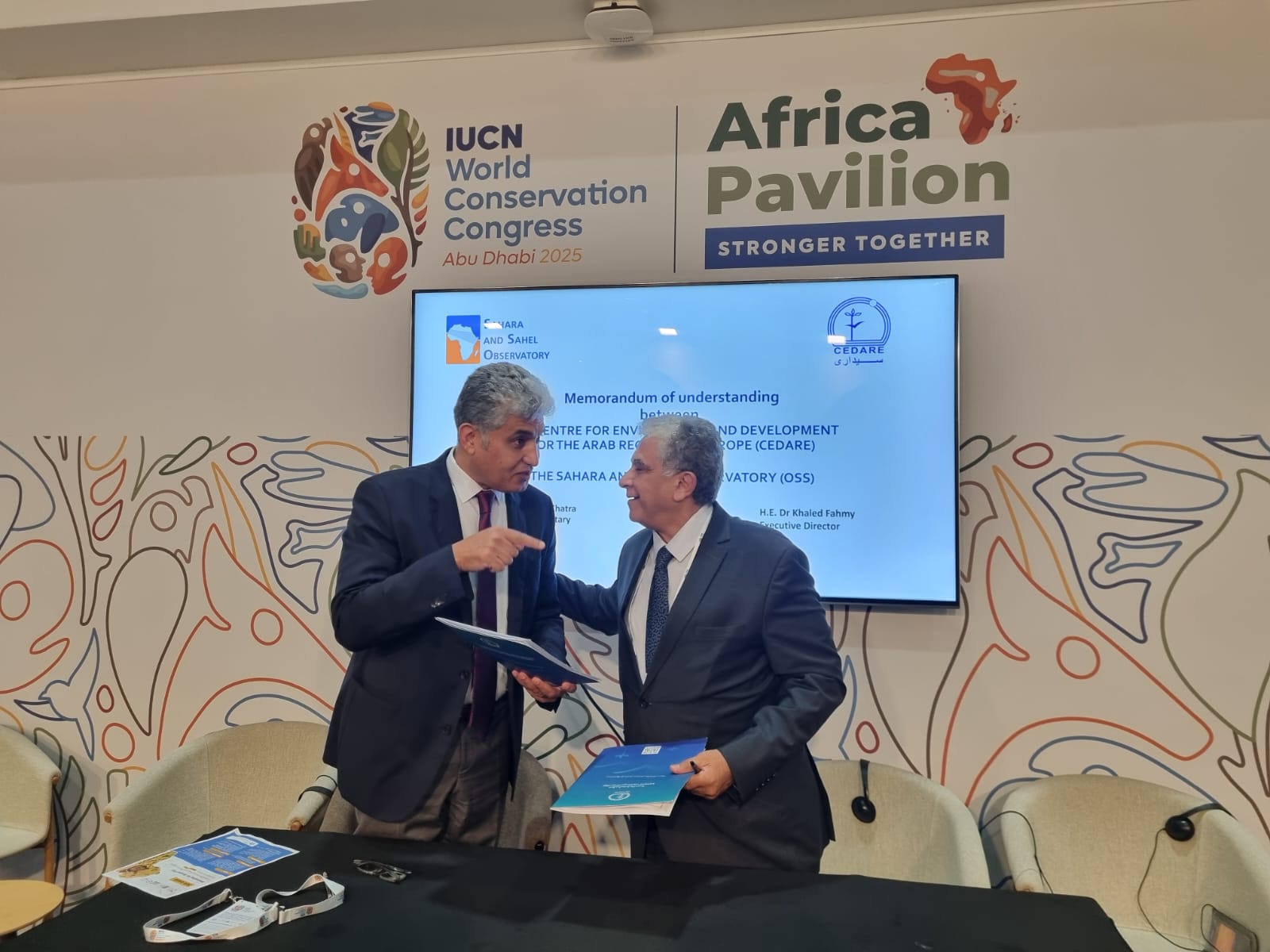
Abu Dhabi, October 11, 2025
A framework cooperation agreement was signed between the CEDARE and the OSS, represented respectively by H.E. Dr. Khaled FAHMY, Executive Director, and Mr. Nabil Ben Khatra, Executive Secretary, on October 11, 2025. This commitment marks an important milestone in strengthening regional synergies around ecosystem accounting and nature-based solutions in Africa.
The agreement was signed on the sidelines of the side event entitled “Ecosystem Accounting and Nature-Based Solutions: African Approaches for an Integrated Policy on Climate, Food, and Biodiversity”, which was also attended by Mrs. Karima HAGUI, Secretary-General of the Ministry of Environment of Tunisia.
These initiatives illustrate Africa’s mobilization to transform its environmental policies and to place nature at the heart of its development strategies, in order to address the accelerated loss of biodiversity, land degradation, and the growing impacts of climate change.
Mrs. Abir Ben Romdhane, Head of the Biodiversity Division at OSS, Mr. Hatem Ben Belgacem, Director of Ecology at the Tunisian Ministry of Environment, and Mr. Ahmed Ghedira, representative of the NGO Notre Grand Bleu and of the IUCN Tunisia Committee, presented concrete examples of the integration of ecosystem accounts into public and territorial policies.
Through the Copernicea project and the AfrikENCA platform, structured data now enable precise monitoring and improved planning for biodiversity conservation at the continental scale. At the local level, the discussion highlighted a case study on the restoration of Posidonia seagrass meadows, demonstrating practical applications of ecosystem accounting in natural habitat rehabilitation.
In line with these initiatives, emphasis was also placed on the key results of the World Bank’s technical assistance on sustainable tourism, showcasing the value of these tools in reconciling economic development with ecosystem protection.
These results, presented in a Summary report available online, open up concrete perspectives for more integrated and effective policies.
The discussions as a whole highlighted the structuring impact of ecosystem accounting and nature-based solutions on public policy design and land-use planning. These approaches enhance climate resilience, support food security, and promote integrated and sustainable management of natural resources. They also contribute to building a genuine African community of practice, bringing together young experts, researchers, policymakers, and local actors around a shared vision for biodiversity and sustainable development.
In closing, H.E. Dr. Khaled FAHMY reaffirmed the added value of nature-based solutions in strengthening the links between food security, sustainable ecosystem management, and biodiversity conservation. He emphasized the need to align governance and biodiversity approaches, while integrating regional dimensions into national strategies. He also advocated for inclusive governance, fully engaging local communities and civil society—an essential condition for building a more resilient and sustainable Africa